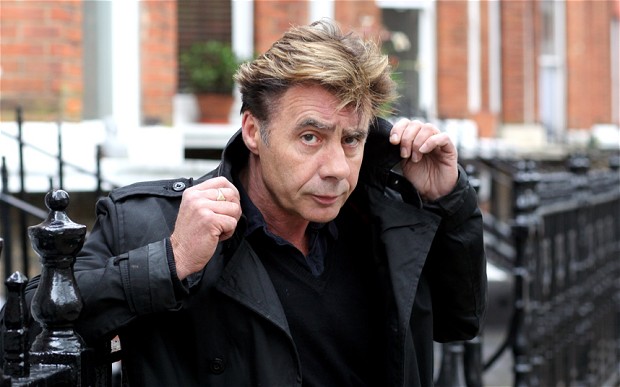Ever since their heyday, The Sex Pistols have been lauded as the quintessential symbol of rebellion and political discontent in our time. We caught up with former member Glen Matlock to talk music, MI5 and a big, middle finger to the Queen on her Silver Jubilee…
What sort of music have you been listening to lately?
Miles Davis, Captain Beefheart, the Sensational Alex Harvey Band, a little bit of Pharrell Williams, Muse. I’ve been listening to all kinds of things.
Do you have a favourite artist at the moment?
Yeah, probably Pharrell. Or maybe Bob Dylan. He’s back in the public eye a little bit, so I’ve been checking him out a bit more recently. I’ve always appreciated him.
How did you feel about him winning the Nobel Prize?
‘The cat amongst the pigeons’ was all the stuff that all the writers put down, but I think it was well-deserved actually. Like lots of people have been saying, he wrote songs, for normal people, that were skilled, and that can be studied, with a unique view. So yeah, I thought it was good.
You mentioned Pharrell Williams. You covered his song ‘Happy,’ with Slim Jim Phantom and Earl Slick. What inspired you to do that?
Well it’s two years old now, but when we did the cover that song had not long been out. I actually really like it, and I was trying to work it out on the guitar. It’s got some quite jazzy chords in it, which actually sounded kind of wrong to me. Normally I like simple things, so I simplified it, and it ended up sounding, to me, a bit like the Pretty Things. Anyway, I had to headline the Rebellion Art Festival in Blackpool, and I thought ‘Oh, if I take this spot, I’ll attract a load of new people’, so I tried it out there. The faces in the crowd were ones of astonishment; they just started singing along with it.
Alright, I’m going to give you a heads up here: I’m going to ask you about the Sex Pistols now.
Ugh, here we go.
Here we go. Many people see tracks like ‘God Save The Queen’ as being the birth of political punk music. Did you, personally, see the Sex Pistols as being a political band?
No, I saw us, and I think we saw the audience, as being a safe outlet to what was true to people, but we just did what we wanted to, when we wanted to do it. I mean, quite a lot of songs we did, I would just come up with it on my guitar and that was it. My main contribution, lyrically, ‘Pretty Vacant,’ and that was written a long time before I actually went in the vein of ‘God Save The Queen’. It’s certainly not a love song, or a ‘our love shall forever last’ kind of song, more of a Primal Scream type deal: a reaction to what was going on around us. You know, London, in the early to mid-70s, when we were starting out, was a complete mess. And there was a lot of heavy stuff going on, as there is now, economically-speaking. That sort of stuff either breaks you down, or you work through it somehow. You know, ‘God Save The Queen’ was originally called ‘No Future’, and then later on we had to play it from a boat for the record company during the Silver Jubilee, there was basically no effort on our part, and they asked if we still wanted to call it ‘No Future’ or if they wanted us to think about it amongst ourselves and I thought it was pretty basic. So yes, people saw it as a threat; the young punk voice came along, and then people could speak their minds.
Just in regards to people seeing the Sex Pistols as a threat, do you remember anything specifically awful about the social outrage that it caused?
Well I mean, I’ve never considered myself to be the most outlandish member of the band, and I know that I left the band earlier, before all the outrage happened. Although for many years afterwards, I’m pretty sure my phone was tapped. People always saw something in us. They had a file on us at one stage.
They had a file on you?
Yep. It just shows you how people who looked horrid and different were seen as a nuisance. Especially to old people, because we were just so young. I think in my time, it was just different from whatever else was going on. I mean, anybody who’s anybody looks like they just walked out of Topshop these days. But back then, everybody that was anybody had slightly long hair, this same kind of frazzled look, even bank managers and the like had it.
Interview by Zack Moore
[image: The Telegraph]

